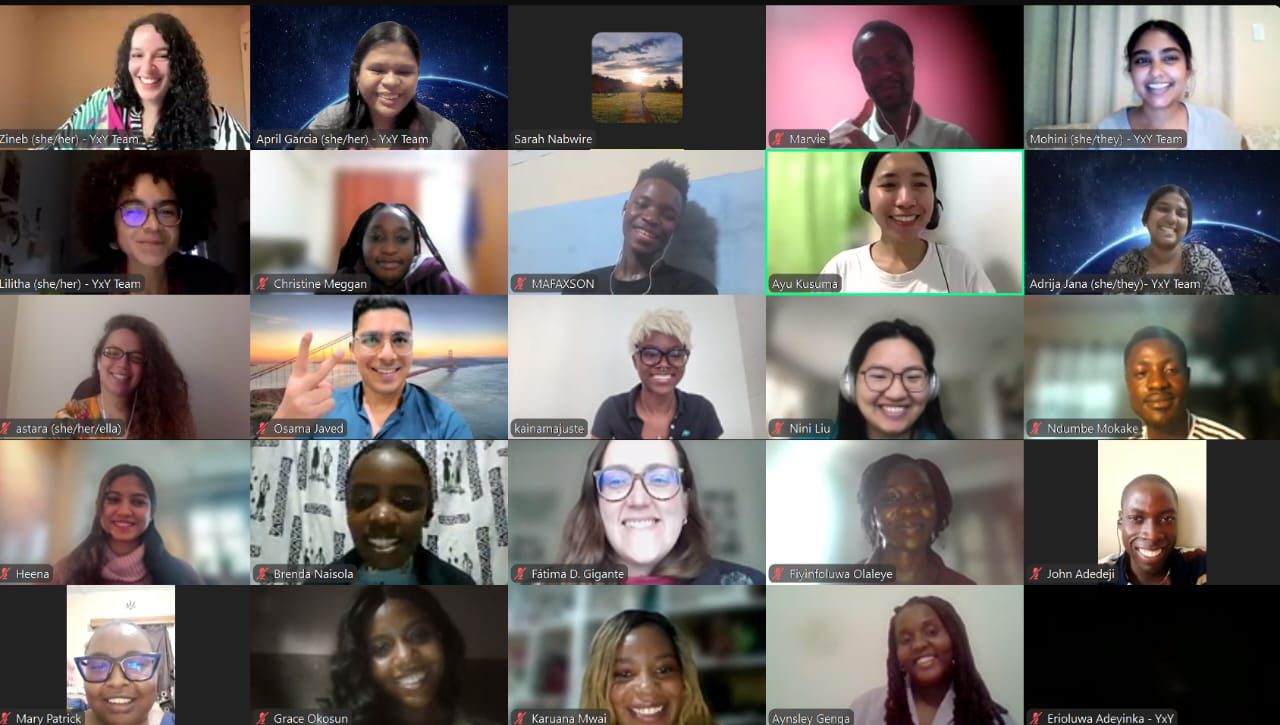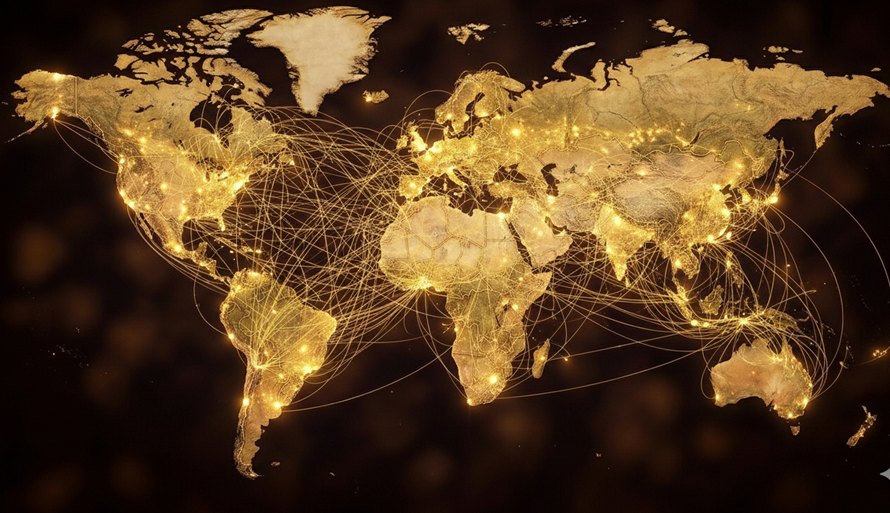Developing Activist Capacities - Sensemaking
The Developing Activist Capacities series takes a deeper look at which capacities we need to be conscious activists.
Let's take a look at SENSEMAKING!
What is it?
Sensemaking or sense-making is the process by which people give meaning to their collective experiences. It has been defined as "the ongoing retrospective development of plausible images that rationalize what people are doing" (Weick, Sutcliffe, & Obstfeld, 2005, p. 409).
Sensemaking is a philosophy that fosters a greater understanding in an individual capacity or collectively, in order to gain an overall consensus.
It's a process that allows people to understand ambiguous, equivocal or confusing issues or events. (“Making Sense of Sensemaking in Organization Studies”)
Why does it matter?
So why is it important for us to engage in meaningful Sensemaking? There are a few very important reasons:
- Collective Understanding. Our current ways of living and operating as a society often perpetuate divisiveness, exclusion and inequality. Sensemaking allows us to question why this is, to understand our complex histories and acts as the first step in imagining a better world. It offers a positive, inclusive, and just way forward.
- Struggle, Conflict and Pain. In order for us individually and collectively to move past conflict, struggle, and pain we have to make sense of the injustice. We need to understand the cause, context and reason. This allows us to be fully liberated from our injustice, to move forward with a greater understanding, and with the tools to prevent the injustice from occurring again.
- Critical Thinking. Sensemaking allows us to learn and practice crucial skills such as critical thinking. Critical thinking is the analysis of available facts, evidence, observations, and arguments to form a judgment. The use of critical thinking and Sensemaking can prepare us to go into different spaces with a greater level of understanding and with the tools to equip us for various circumstances
- Purpose. Sensemaking can be a sacred means to get to know yourself and the world around you. It can allow you to contextualize and grasp daunting subjects like identity and purpose resulting in you having a better understanding of who you are, your value and place in the world.
- Humanity. In Christian Madsbjeg's words "When we get our understanding of humanity wrong, we get everything wrong”
- Activism. By engaging in Sensemaking, you're learning, understanding and liberating your consciousness. This is a radical act that fuels you in your actions and thoughts. It's an act of activism.
How can we foster genuine & generative Sensemaking?
In fostering and nurturing genuine and generative Sensemaking, there are a number of elements to take into consideration: how you show up; agreements for the space; the context around the matter you are trying to understand; your sources on the matter. We will discuss all of these important dimensions below.
Showing Up for Sensemaking
- Four practices are key for showing up in a space: 1. Listening; 2. Respecting; 3. Suspending; and 4. Voicing
- Listening — We must listen not only to others but to ourselves, dropping our assumptions, resistance, and reactions.
- Respecting — We must allow rather than try to change people with a different viewpoint.
- Suspending —We must suspend our opinions, step back, change direction, and see with new eyes.
- Voicing —We must speak our own voice. Find our own authority, giving up the need to dominate. We build on what others have said rather than openly contradicting them or debating their ideas.
Agreements
If you are practicing Sensemaking collectively with multiple people we encourage you to come up with your own agreements and present these as recommended elements to incorporate:
- Be curious and listen to understand.
- Suspend judgment and assume positive intent.
- Note common ground as well as differences.
- Be authentic and welcome that from others.
- Observe the observer and listen to your listening.
- Acknowledge intentions while taking responsibility for your impact.
- Treat the candidness of others as a gift and honor confidentiality.
Context
We recommend that you enter a space of Sensemaking with some context and history on your subject/topic/circumstance/event of choice. Below are some prompts to guide you. Remember to honor your curiosity!
- Ask questions about your topic. When? Where? Why? How?
- Think about where you could find information on your subject or who has knowledge to share on your subject .
- Think about your positionality in relation to your subject.
- What do you already know about this subject?
Sources
We recommend that when practicing Sensemaking you think critically about where or from who you’re getting your subject matter. Ask critical questions when finding a resource.
- How relevant is this source? When was it created?
- Is the source credible? May they have a bias?
- Whose voices/viewpoints are not being heard?
- Is it fact or opinion? Do the authors leave out important facts or alternative perspectives?
Strategies & Practice Exercises
Here you will find strategies and exercises you can practice to become better at understanding and engaging with Sensemaking.
Cognitive reasoning strategies
(Antes, Brown, Murphy, Hill, Waples, Mumford, Connelly, & Devenport, 2007)
Expanded definitions of cognitive reasoning strategies relevant for ethical decision-making
Strategy
Operational Definition
1 Recognizing your circumstances
Thinking about origins of problem, individuals involved, and relevant principles, goals & values; considering one’s own role in causing and/or resolving the problem
2 Seeking outside help
Talking with a supervisor, peer, or institutional resource, or learning from others’ behaviors in similar situations
3 Questioning your own and others’ judgment
Considering problems that people often have with making ethical decisions, remembering that decisions are seldom perfect
4 Dealing with emotions
Assessing and regulating emotional reactions to the situation
5 Anticipating consequences of actions
Thinking about many possible outcomes such as consequences for others, short & long term outcomes based upon possible decision alternatives
6 Analyzing personal motivations
Considering one’s own biases, effects of one’s values and goals, how to explain/justify one’s actions to others, & questioning ability to make ethical decisions
7 Considering the effects of actions on others
Being mindful of others’ perceptions, concerns, and the impact of your actions on others, socially and professionally
Strategy - Breaking down Sensemaking
Sensemaking can be broken down into three components: problem recognition, information gathering, and information integration.
(Weick, 1995; Weick, Sutcliffe, & Obstfeld, 2005)
- Problem recognition is the first step of Sensemaking. During this stage, the individual recognizes that the status quo has been disturbed and that attention should be paid to this developing situation. Eventually a decision can be made regarding whether or not action is necessary. However, problem recognition is merely the act of realizing that something in a given situation is out of the ordinary.
- After an individual recognizes that something is awry, the second and third stages of Sensemaking can begin. Namely, information is gathered and integrated. This involves looking for information that can help the individual understand how this situation differs from expectations. Once this information has been gathered the individual can assign meaning to the information and decide how important each piece of information is.
- Once meaning has been given, the individual can put these pieces of information together to see if larger patterns can be identified. Ultimately, the goal of Sensemaking is to identify how important the emergent situation is, why it differs from the norm, and what can be done to influence the outcome of the situation if that is necessary.
Root cause analysis - The Five Whys
The Five Whys is a tool used to understand the cause and effect of arising conflicts, problems or concerns. A great tool for sensemaking!
- Start with a specific problem. What is it that you are having an issue with or are trying to understand?
- Ask why? Why did this happen? Why does it matter? Why do I feel the way I do? Find the “why?” question that resonates best with what you’re trying to understand.
- Keep asking “Why*”* to each of your answers until you reach the root cause of the problem.
- Reflect on your journey of asking “why?” Understand the complexity and nuisances of the issue at hand and use the discovered root cause of the problem to find a way forward.
Group Exercises - A Sensemaking club
- Context: Within a small group, collectively decide on an event/subject/topic/idea that everyone involved has minimal knowledge on.
- Research: In a personal capacity each person researches the subject. This could be through movies, books, articles and so on.
- Collective Reflection: After everybody does their research you come together to reflect, sharing your insights, perspectives, thoughts and ideas. Try and listen to how everybody interprets the subject: where do they stand?; what knowledge do they have to share; do they have different views? Honor, respect, and reflect on what was shared. Think about the collective understanding you have on the subject and the immense value of everybody’s contributions.

.png)
%20(1).jpg)



Comments